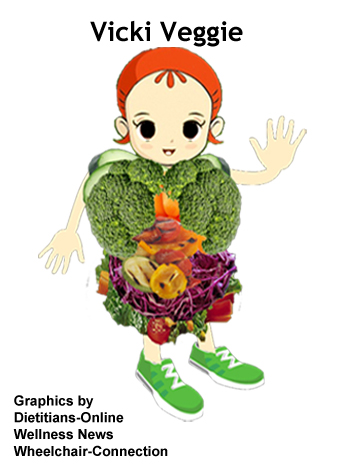The theme explores the health benefits associated with eating foods from all the food groups and staying active. During the month of March, we will explore the food groups and their benefits.
Our Host this year is Mary MyPlate.
She puts it all together.
She puts it all together.
Her support cast includes .....
and Some Surprise Friends
Wellness News employs young adults with "Special Needs" (Cerebral Palsy, Autism, Down Syndrome, Muscular Dystrophy). Many of the photographs are available for purchase with the proceeds going to special need young adults. Contact Dr. Sandra Frank for additional information (recipenews@gmail.com).
Prepared by
http://www.dietitians-online.com/
http://www.weighing-success.com/
Wellness News (www.weighing-success.com/WellnessNews.html)
http://www.wheelchair-connection.com/
Sandra Frank, Ed.D, RD, LDN
Jake Frank
Lance Li
Michelle Canazaro
http://www.dietitians-online.com/
http://www.weighing-success.com/
Wellness News (www.weighing-success.com/WellnessNews.html)
http://www.wheelchair-connection.com/
Sandra Frank, Ed.D, RD, LDN
Jake Frank
Lance Li
Michelle Canazaro





















